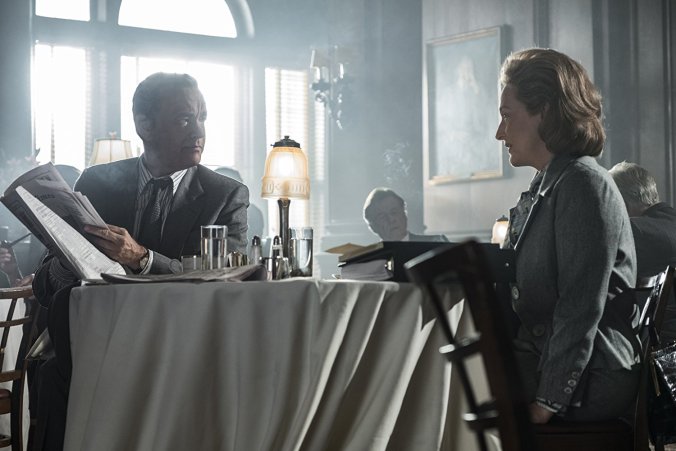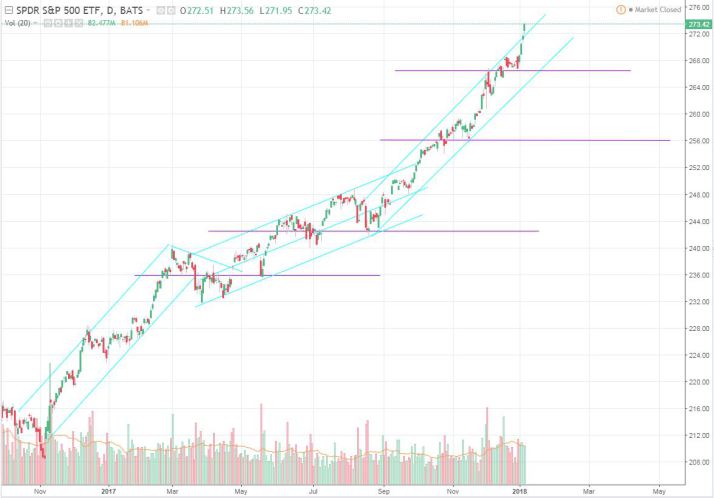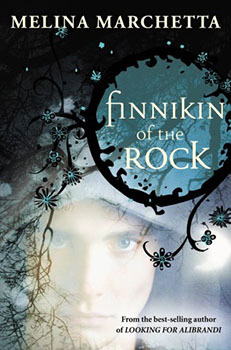
Tom Hanks and Meryl Streep in a scene from Steven Spielberg’s The Post

by Ken Bakely
The main villain in Steven Spielberg’s The Post is time. Beyond more obvious factors – namely the machinations of Richard Nixon, attempting to secure injunctions against The New York Times and The Washington Post in their 1971 publications of the Pentagon Papers – the film’s rhythm is bound like a searing, ticking clock. It’s apparent when we settle into the key conflict, which sees the newspaper’s then-editor, Ben Bradlee (Tom Hanks), and its then-publisher, Kay Graham (Meryl Streep), securing thousands of pages of classified documents and deciding when and how to go through with publishing them. To run the papers is a clear statement about the importance of the First Amendment and a strike against decades of cover-ups and outright lies about the Vietnam War. But it comes at the cost of legal challenge, and if the courts rule against them, a blow to press freedom in the United States which will resonate for generations.
We know how the story ends, we know what the editorial decision is, and we know how the legal battles will end up. But a key mistake that many historical films commit is clueing its main characters in on this fact, and having them act accordingly. This one takes a simple but critical step to alleviate this: it keeps them in the dark. Its finest, tensest moments show the uncertainty which would have flowed through the minds of those present. Spielberg can’t help but add his trademark buttons – colorful musical underpinnings, haughty speeches in the last act which summarize the movie’s thesis, and overbearing visual cues which turn barely-masked subtext into blaring text (a scene where the majority decision in New York Times Co. v. United States is read out loud, in close-up, to a packed newsroom is particularly overt). But in The Post’s gripping midsection, it’s all about choices, and the agony over having so little time to make such massive ones.
It’s then when we see a veteran director recognize the need to give breathing room to his masterful cast. The richest personal arc belongs to Streep’s Kay Graham. Juggling the urgency of the story with the desire to bring more investors to the paper, she is also on a journey of defense and self-assuredness, having to work against the prejudices of a male-dominated business world. The inheritance of control over the paper, despite it having been in her family for ages, is seen as something of a fluke by the shareholders (since she received the reins only through her husband’s death, it sort of was). Streep excels in the role, of course, but this movie gives her an increasingly rare opportunity to remind us of her strength in quiet, understated moments. She deals in pauses before answers, nervous gulps in board meetings while men stare her down, and sighs that somehow manage to be both defiant and uncertain. For all the ways that this film’s timeliness has been attributed to its a rallying call for a free press, unimpeded by government threats, The Post is also a swelling declaration for the autonomy battles of its female protagonist.
Yet there is also Hanks, with his crackling, barking Bradlee, rough exteriors giving way to headstrong dialogue, and an underappreciated turn from Bob Odenkirk, who carries the bridge between the film’s first and second acts as Ben Bagdikian, the reporter who followed the lead to the Papers in the first place. The Post has dozens of speaking parts in total, but they are all tightly wound as the movie itself, springing up into a neat package of critically adhered quiltwork. It’s a smaller film than Spielberg could have been tempted to bang out with a few more months, and it benefits from a production which mirrored the urgency of its plotline. His tracking shots are truncated, his typically firm and distant camera is closer in and handheld, and even though it can rile itself up in the fussy climax, John Williams has created a score that is less conductive, and more propulsive.
Despite this, The Post is ultimately soft and warm, sending us off with a clear sense of comfort. It fills us with hope, it pats us on the shoulder, and it tells us again what it has said already. Even its most splayed-out moments play their part in the thrilling value of watching professionals do their jobs right. In a pivotal scene, when Graham is on the phone with Bradlee, and investors listen in, she is told by him that at her command, they can rush the story about the Papers into print for the next morning’s edition, or wait to clear it for a later point. The other men tell Graham to hold off, all but ready to make the choice for her. As the news deadline draws nearer, she only has seconds to make a decision. We center in on her, and Streep’s acting is magnificent, summing up the entire movie’s philosophy in one reaction: she hesitates, she stammers, she takes short breaths. We look in, and we know what she will say. But she does not, until she finally says it.





